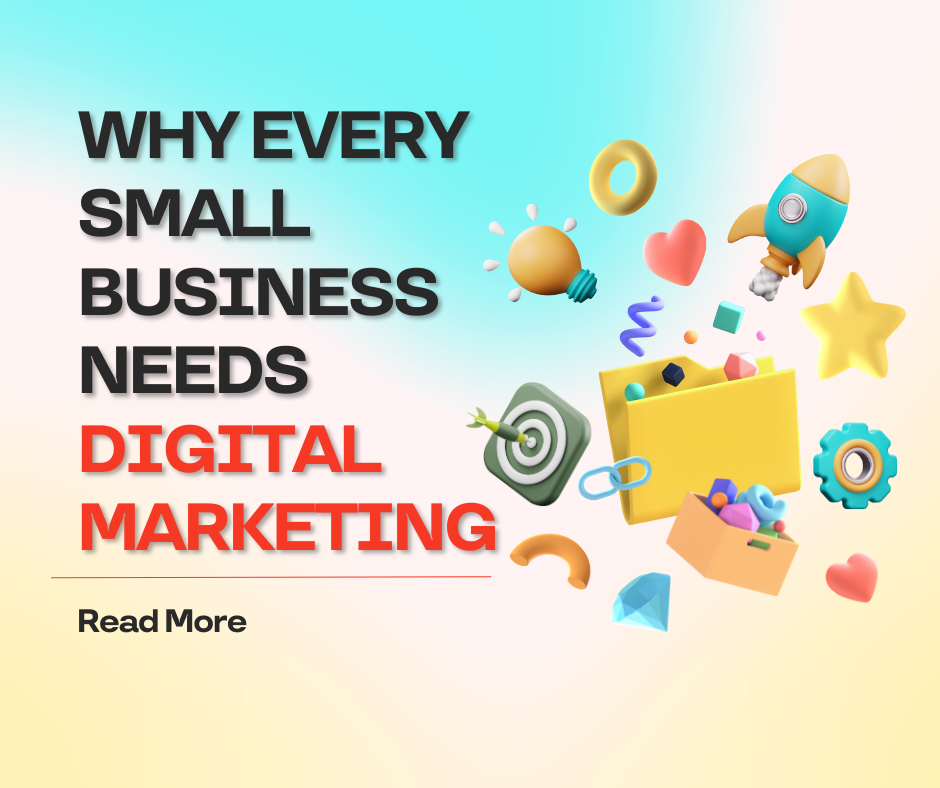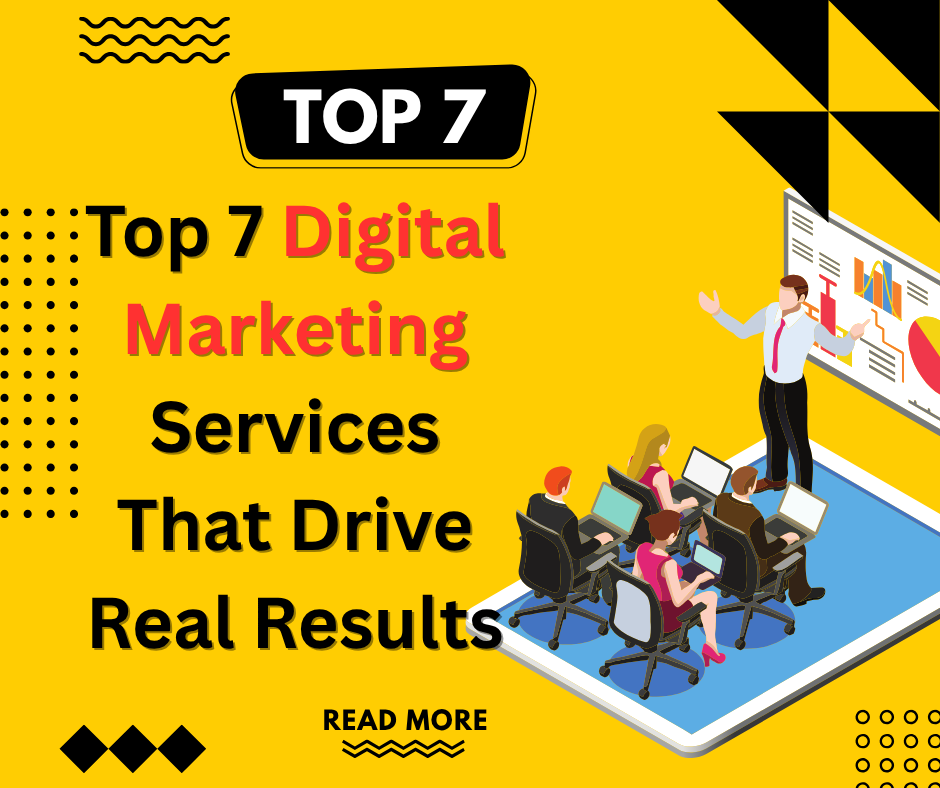Introduction
Small business digital marketing has become the cornerstone of modern business success, transforming how entrepreneurs connect with customers and drive growth. In today’s competitive landscape, having a strong online presence isn’t just an advantage—it’s a necessity for survival and prosperity.
The digital revolution has fundamentally changed consumer behavior. Over 4.9 billion people worldwide use the internet, and 92% of consumers research products online before making purchases. This shift means that small businesses without a digital marketing strategy are essentially invisible to their potential customers.
This comprehensive guide will explore why digital marketing is crucial for small businesses, provide actionable strategies you can implement immediately, and help you avoid common pitfalls that could derail your online marketing efforts.
What Is Small Business Digital Marketing?
Small business digital marketing encompasses all online marketing activities designed to promote products, services, and brand awareness through digital channels. Unlike traditional marketing methods, digital marketing offers unprecedented targeting capabilities, real-time analytics, and cost-effective solutions that level the playing field between small businesses and large corporations.
Digital marketing for small businesses includes various components such as search engine optimization (SEO), social media marketing, email marketing, content marketing, pay-per-click advertising, and website optimization. Each element works synergistically to create a comprehensive online marketing ecosystem.
The beauty of digital marketing lies in its accessibility and scalability. Small businesses can start with minimal budgets and gradually expand their efforts as they see results. This flexibility allows entrepreneurs to test different strategies, measure performance, and adjust their approach based on real data rather than assumptions.
Modern consumers expect businesses to have a digital presence. They want to find information quickly, read reviews, compare prices, and make informed decisions. Businesses that fail to meet these expectations risk losing customers to competitors who have embraced digital transformation.
7 Essential Digital Marketing Strategies for Small Businesses
1. Build a Professional Website with SEO Optimization
Your website serves as your digital storefront and is often the first impression potential customers have of your business. A well-designed, mobile-responsive website builds credibility and provides essential information about your products or services.
Implement on-page SEO by incorporating relevant keywords naturally into your content, optimizing meta descriptions, and ensuring fast loading speeds. Local SEO is particularly important for small businesses, so claim your Google My Business listing and encourage customer reviews.
2. Leverage Social Media Marketing
Social media platforms offer direct access to your target audience and provide opportunities for engagement and community building. Choose platforms where your customers are most active rather than trying to maintain a presence everywhere.
Create valuable content that resonates with your audience, including behind-the-scenes glimpses, customer testimonials, and educational posts. Consistency is key—develop a content calendar and post regularly to maintain engagement.
3. Implement Email Marketing Campaigns
Email marketing delivers one of the highest returns on investment among digital marketing channels. Build an email list by offering valuable incentives such as exclusive discounts, free resources, or newsletters.
Segment your email list based on customer behavior and preferences to send targeted messages. Personalized emails generate higher open rates and conversions compared to generic broadcasts.
4. Create Valuable Content Marketing
Content marketing establishes your expertise and builds trust with potential customers. Blog posts, videos, infographics, and podcasts can attract organic traffic and position your business as an industry authority.
Focus on solving your customers’ problems and answering their questions. Quality content that provides genuine value will naturally attract backlinks and improve your search engine rankings.
5. Utilize Pay-Per-Click Advertising
PPC advertising through Google Ads and social media platforms provides immediate visibility and can generate quick results. Start with small budgets and test different ad formats, targeting options, and messaging.
Monitor your campaigns closely and optimize based on performance data. Focus on high-intent keywords and create compelling ad copy that addresses specific customer needs.
6. Embrace Video Marketing
Video content has become increasingly popular and effective for small businesses. Create product demonstrations, customer testimonials, educational tutorials, or behind-the-scenes content.
Platforms like YouTube, Instagram, and TikTok offer opportunities to reach new audiences and showcase your brand personality. Even simple smartphone videos can be effective if they provide value to viewers.
7. Monitor and Analyze Performance
Use analytics tools to track your digital marketing performance and make data-driven decisions. Google Analytics, social media insights, and email marketing metrics provide valuable information about customer behavior and campaign effectiveness.
Regular monitoring allows you to identify what’s working, what isn’t, and where to allocate resources for maximum impact. Set up conversion tracking to measure ROI and adjust strategies accordingly.
Essential Digital Marketing Tools for Small Businesses
Digital marketing tools can streamline your efforts and provide valuable insights into your campaigns. Google Analytics offers comprehensive website analytics, while Google Search Console helps monitor your search engine performance.
Social media management platforms like Hootsuite or Buffer allow you to schedule posts across multiple platforms and track engagement metrics. Email marketing tools such as Mailchimp or Constant Contact provide templates, automation features, and detailed analytics.
For content creation, tools like Canva simplify graphic design, while video editing software like Loom or Camtasia can help create professional-looking content. Customer relationship management (CRM) systems help organize customer data and track interactions across all touchpoints.
Many of these tools offer free versions or affordable pricing tiers specifically designed for small businesses, making professional-grade marketing accessible to entrepreneurs with limited budgets.
Common Digital Marketing Mistakes to Avoid
One of the biggest mistakes small businesses make is trying to be everywhere at once. Instead of spreading resources thin across multiple platforms, focus on mastering one or two channels that align with your target audience and business goals.
Inconsistent branding across digital channels confuses customers and weakens brand recognition. Ensure your messaging, visual identity, and tone remain consistent across all platforms and touchpoints.
Neglecting mobile optimization is a critical error, as over 60% of web traffic comes from mobile devices. Your website and content must provide excellent user experiences across all devices.
Ignoring customer feedback and reviews can damage your reputation. Respond promptly to both positive and negative feedback, and use criticism as an opportunity to improve your products or services.
Many small businesses also make the mistake of focusing solely on sales-driven content. While promotional content has its place, providing educational and entertaining content builds stronger relationships with your audience.
Failing to track and analyze performance metrics means missing opportunities for improvement. Without data, you’re essentially marketing blind and cannot make informed decisions about future strategies.
Finally, expecting immediate results from digital marketing efforts leads to premature abandonment of strategies. Digital marketing is a long-term investment that requires patience and consistent effort to yield significant returns.
Frequently Asked Questions
Q: How much should a small business spend on digital marketing? A: Most small businesses should allocate 7-12% of their revenue to marketing, with a significant portion dedicated to digital channels. Start with a modest budget and scale up as you see positive results.
Q: Which digital marketing strategy is most effective for small businesses? A: The effectiveness depends on your target audience and industry. However, a combination of SEO, social media marketing, and email marketing typically provides the best foundation for most small businesses.
Q: How long does it take to see results from digital marketing? A: SEO and content marketing can take 3-6 months to show significant results, while PPC advertising can generate immediate traffic. Social media and email marketing results vary but typically improve within 1-3 months of consistent effort.
Q: Can small businesses compete with larger companies in digital marketing? A: Absolutely. Digital marketing levels the playing field by allowing small businesses to target specific niches, provide personalized experiences, and build authentic relationships with customers—advantages that larger companies often struggle to replicate.
Conclusion
Small business digital marketing is no longer optional—it’s essential for survival and growth in our digital-first world. The strategies outlined in this guide provide a roadmap for establishing a strong online presence that attracts customers, builds brand loyalty, and drives sustainable business growth.
Success in digital marketing requires patience, consistency, and a willingness to adapt based on performance data. Start with one or two strategies that align with your business goals and gradually expand your efforts as you gain experience and see results.
Remember that digital marketing is an investment in your business’s future. While it may seem overwhelming initially, the long-term benefits far outweigh the initial learning curve. Your customers are online, and your business needs to be there too.
Take action today by implementing at least one of these strategies. Whether you start with optimizing your website, creating social media profiles, or launching an email marketing campaign, the important thing is to begin your digital marketing journey and commit to continuous improvement.


